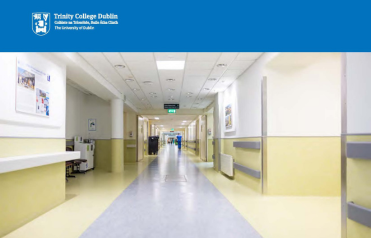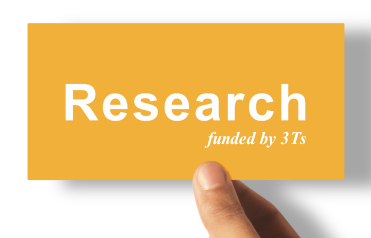.png?sfvrsn=8e4846d1_0)
Accessing Help for Self-Harm & Suicidal Behaviour in the Emergency Dept: a two-phase research study
Phase 1 Qualitative Research Study by Trinity College for 3TS Reveals Need for Back to Basics Approach to Patient Care
Lack of understanding, labelling and the need for a ‘back to basics’ approach were some of the key findings to emerge from Phase 1 of our qualitative study into Accessing Help for Self-Harm and Suicidal Behaviour in the Emergency Department.
Phase 1 focused on the experience of the service user attending the Emergency Department with self-harm, suicidal behaviours or an attempted suicide with the final report published in July 2020. Phase 2 of the study focussed on companions i.e. the family, friends or carers who accompany them.
3TS commissioned these studies as part of our ongoing commitment to Suicide Prevention and Self Harm research. Research was carried out by researchers from the Mental Health Nursing Team at the School of Nursing and Midwifery, Trinity College Dublin, led by Dr Louise Doyle, Associate Professor of Mental Health Nursing.
Phase 1 - A Qualitative Study
Phase 1 focused on the personal experiences of 50 participants who had presented to the Emergency Department (ED) of Hospitals for self harm or suicidal behaviour throughout Ireland within the preceding 5 years. Just under half of participants reported presenting with suicidal ideation without self-injury. The remainder presented following self-harm which comprised overdose and / or self-cutting.
Variability in experiences, positive & negative
An important primary point to note from this study is the significant variability in the experiences of participants. Some had more than one presentation to different EDs, yet reported positive experiences in one ED and negative experiences in another. Participants who presented more than once to the same ED also reported variability. Some had largely positive experiences and others negative.
“I’d just say, the best advice I could possibly give is actually listen to the person that’s sitting in front of you. They’re not just a number, they’re not just there for the sake of being there. They’re asking for help, we’re crying out for help….” (ED15)
National Care Programme
In some cases this variability may be explained by the operationalisation of the National Care Programme (NCP) for the management of self-harm in the ED. The study notes that where participants were treated by staff from this programme, experiences were generally much more positive. However, this programme is not in operation in all hospitals and in hospitals where it is in place, hours of delivery vary. Almost all study participants, however, identified that their experience in the ED could be improved.
Since Phase 1 of this research was published, 3Ts have been gratified that it has helped inform the National Clinical Programme for Self-Harm & Suicide-related Ideation (published February 2022). Research recommendations that have been adopted in the NCPSH include:
- Tickbox & checklist approach to assessment ineffective for clinicians & unsatisfactory for patient.
- Need to deal with emotional needs as well as physical.
- Important that assessor gives perception of being relaxed, unhurried & has a good understanding of patient’s needs.
- ED unsuitable for suicidal ideation – noisy, stressful, long delays between registering & assessment are especially difficult.
- Feeling of being in the wrong place, yet unaware of any suitable alternatives
Call for dedicated Mental Health Emergency Department
This important research represents the very personal experiences of many people who attend our EDs at a time of crisis seeking both emergency physical and mental health care . 3Ts believe that whilst in no way undermining the hard work and care offered by the excellent medical health care teams in our hospitals, it highlights the need for the provision of specialised Suicide and Self-Harm care services in EDs. Specifically, 3Ts believe this research highlights the need for a Mental Health Emergency Department which should run alongside every A&E in Ireland. This remains one of 3Ts’ main lobbying goals and we intend to pursue enhanced Emergency Mental Health services in our hospitals with Government as per the findings of this study.

